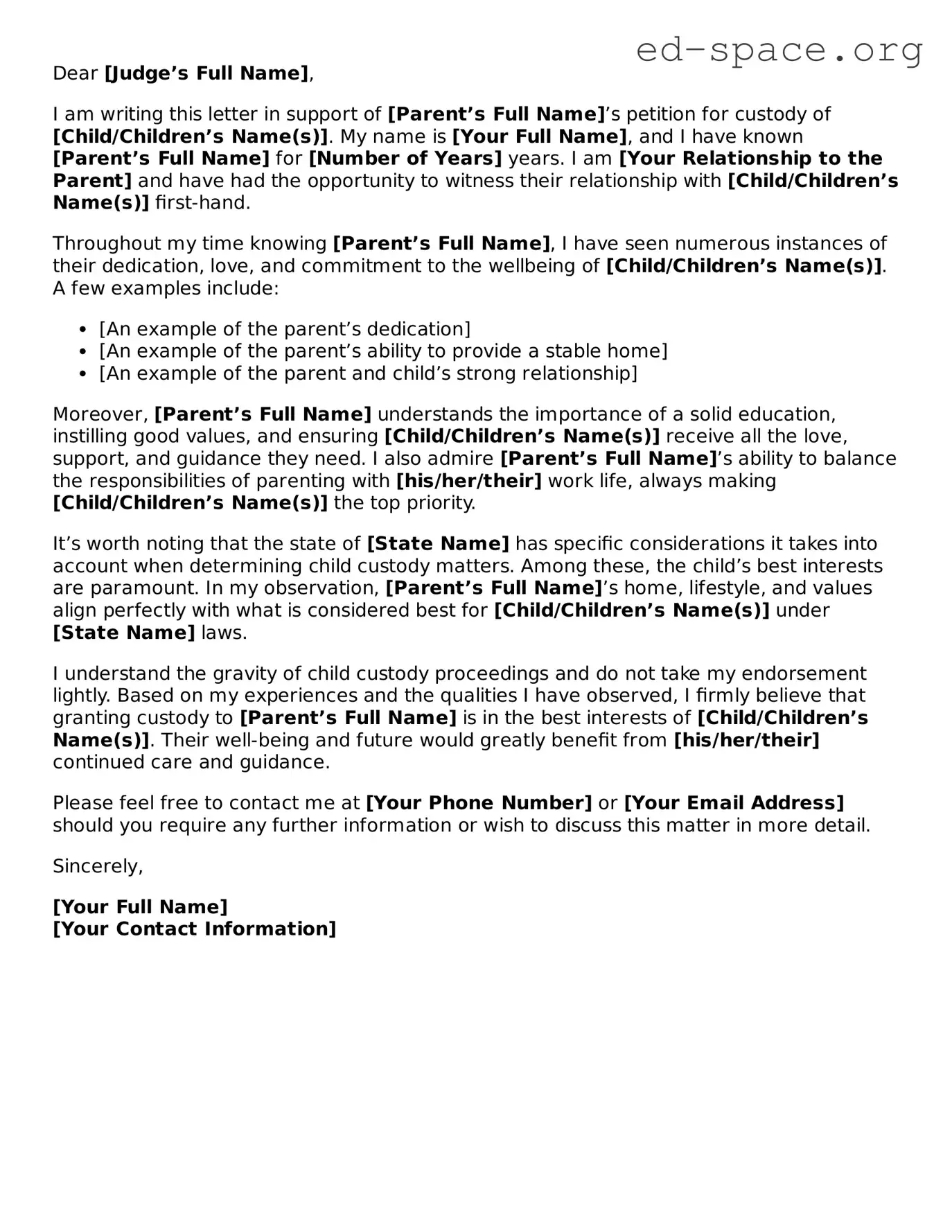Dear [Judge’s Full Name],
I am writing this letter in support of [Parent’s Full Name]’s petition for custody of [Child/Children’s Name(s)]. My name is [Your Full Name], and I have known [Parent’s Full Name] for [Number of Years] years. I am [Your Relationship to the Parent] and have had the opportunity to witness their relationship with [Child/Children’s Name(s)] first-hand.
Throughout my time knowing [Parent’s Full Name], I have seen numerous instances of their dedication, love, and commitment to the wellbeing of [Child/Children’s Name(s)]. A few examples include:
- [An example of the parent’s dedication]
- [An example of the parent’s ability to provide a stable home]
- [An example of the parent and child’s strong relationship]
Moreover, [Parent’s Full Name] understands the importance of a solid education, instilling good values, and ensuring [Child/Children’s Name(s)] receive all the love, support, and guidance they need. I also admire [Parent’s Full Name]’s ability to balance the responsibilities of parenting with [his/her/their] work life, always making [Child/Children’s Name(s)] the top priority.
It’s worth noting that the state of [State Name] has specific considerations it takes into account when determining child custody matters. Among these, the child’s best interests are paramount. In my observation, [Parent’s Full Name]’s home, lifestyle, and values align perfectly with what is considered best for [Child/Children’s Name(s)] under [State Name] laws.
I understand the gravity of child custody proceedings and do not take my endorsement lightly. Based on my experiences and the qualities I have observed, I firmly believe that granting custody to [Parent’s Full Name] is in the best interests of [Child/Children’s Name(s)]. Their well-being and future would greatly benefit from [his/her/their] continued care and guidance.
Please feel free to contact me at [Your Phone Number] or [Your Email Address] should you require any further information or wish to discuss this matter in more detail.
Sincerely,
[Your Full Name]
[Your Contact Information]
